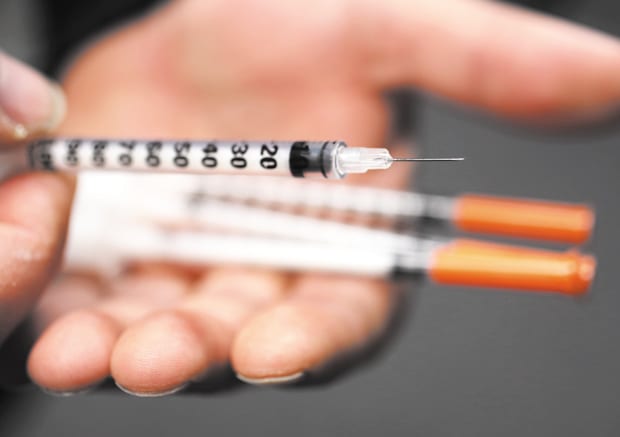But with no Senate companion, road ahead is uncertain

JAMES RUSSELL | Staff Writer
In a surprise move, the Texas House voted Wednesday, May 12, to support a pilot needle exchange program aimed at slowing the spread of HIV and other communicable diseases in select Texas counties.
HB 65, introduced by Rep. Ruth McClendon, D-San Antonio, allows non-profit organizations to establish pilot programs for anonymous needle exchanges in seven Texas counties: Bexar, Dallas, El Paso, Harris, Nueces, Travis and Webb counties.
“These needle exchange programs have proven successful throughout the nation and have recently been enacted in Kentucky and Indiana. Charitable and faith-based organizations have tried establishing these programs in Texas for years, and it is about time the government allows these organizations to help their communities without fear of arrest or government interference,” McClendon said in a statement.
Steven Pace, executive director of AIDS Interfaith Network, said the move was a small but powerful and long overdue victory.
“We need needle exchanges in the arsenal. It is part of the comprehensive approach to HIV. The struggle is really about judgment about drug use, not HIV prevention — and we have been involved in the struggle for 30 years,” Pace wrote via text message. “It’s time for Texas to get on board with all the real ways of doing HIV prevention.”
Januari Leo, director of public affairs for Houston’s Legacy Community Health, was floored by the news, and for good reason.
“It was unexpected,” she said by phone. “We had been following other bills.”
Leo has followed the fight for needle exchange bills in their various iterations since 2003. While it nearly passed in the 2009 session, it wasn’t even on her radar last session — much less this session.
That’s because numerous conservative advocacy groups used the bill against Republican incumbents who supported the measure, including former Sen. Bob Deuell of Greenville, who was defeated in his primary of Sen. Bob Hall.
Resource Center’s communications and advocacy manager, Rafael McDonnell, called the bill “a common sense policy and good for public health,” adding, “I hope it finds support in the state Senate.”
Unlike in previous sessions, the measure has no Senate companion this session, and finding one at the last minute may prove difficult. That leaves the bill’s advocates scrambling and means that as the session winds down, the bill has few paths to survival.
Even if it passes in the Legislature and is signed by the governor, said AIDS Arms Executive Director Dr. John Carlo, two questions remain: funding and implementation.
“Nonprofits like AIDS Arms mostly rely on federal funds, which strictly prohibit the use of funds on needle exchanges. Because [the program] relies on private organizations, we need to seek the funds to be able to manage exchange programs,” he said.
There are an estimated 185 needle exchanges operating nationwide, according to the American Civil Liberties Union. “Where the needle exchanges legally exist, there are certain protocols and systems to follow, including staff, regulations and accessibility,” he added.
He also worries the needle exchanges could also result in the abuse of, for instance, heroin.
“IV drug transfer rates have declined over the years; the number of people at risk for opiate and prescription drug abuse however has risen. As the prescription drug market is further regulated, addicts who are barred from usage will find other ways to access drugs,” he said.
A thankful but cautious Carlo has no doubt advocates are considering these questions. As he succinctly put it, “Now that we’ve been given a gift, how do we use it?”
The regular legislative session ends June 1.
This article appeared in the Dallas Voice print edition May 15, 2015.

